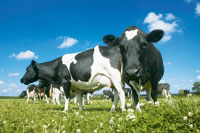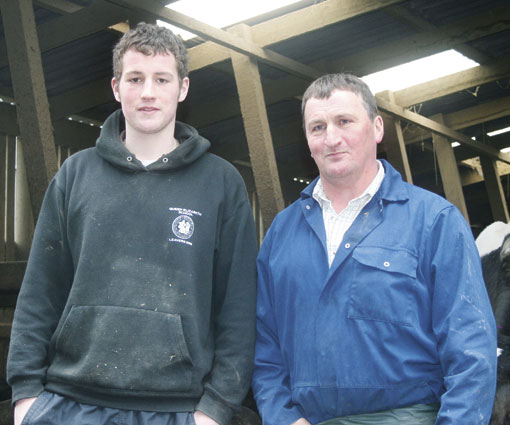Finance is a key challenge for tenant farms

While expansion may be considered the obvious route for survival for many milk producers, it’s not such an easy decision for tenant farmers. And, for Lancashire milk producers Phil and Diane Denby who are 10 years into a 25-year tenancy, it’s decision time.
“We’re here for the long haul but we need to expand. As with all dairy farmers, the past few years haven’t been easy, but as tenant farmers we now need capital investment to keep the business on track,” says Mr Denby.
The Denbys are awaiting a decision from their bank to approve a financial package that will aid the first stage of increasing cow numbers. It will help begin expansion from 110 milkers to almost 150. And while it may be regarded as a modest level of expansion, it’s essential if their 290-acre farm is to remain productive.
The family started farming in 2000 after securing the tenancy of Tatham Hall Farm, Tatham, Lancaster, where they began producing milk from 30 cows. Numbers quickly increased to 150 but it was under a policy of buying older cows to “milk and feed” and then selling as culls. The farmstead had cubicles for 150 head but cows had to be fed at the silage face and milking was into jars through a 9:18 parlour.
“The milk price at that time was 14p/litre and we ploughed everything back into buying cows – and there were good cows to be had at about £500. But they were only milk and feed cows, so although it helped us put milk into the tank and quickly generate some income, it wasn’t producing us any replacements, so inevitably cow numbers dipped again.”
The landlord agreed to build a new set of wooden cow kennels but since that initial improvement all further capital investment has been the responsibility of the Denbys.
Recent years have seen the herd steadily increase to its present size and, after leaving Dairy Farmers of Britain just before the collapse, the Denbys secured a contract to supply milk to local dairy farmers and retailers John and April Towers for their Braides Farm brand.
 |
|---|
Phil (right) and Alex Denby (left) say an injection of capital is needed to increase production and maintain profitability. |
But trying to increase income to finance further capital investment in the farm hasn’t been easy. And like many other tenant dairy farmers needing to expand, the future now hangs on the bank providing the finance.
“Our farm consultants have prepared the proposals and the figures we’ve put forward stack up. The bank has been supportive but on farms like this, having come through the difficult times, we now need an injection of capital to take us up to a level of production to maintain profitability, provide us with the means to finance future investment and to keep the farm as a viable dairy unit,” says Mr Denby.
Over time improvements have been made to part of the farm’s cubicle accommodation used for high yielders with the installation of new and longer cubicles and cow mats. “And when you see how improving cow comfort makes such a difference to yield and overall health, it’s frustrating to know how much your herd profitability is being held back because you can’t invest.”
Alex, one of the Denbys’ four children, is keen to join the business. “I’m confident about the future for dairy farming and I’m committed to milking cows. There should rightfully still be a place in the milk sector for family-run farms of this size – and particularly those keen to expand.
“On this farm we now need extra cows to provide enough income to keep things going forward. That might seem a simple solution but for many tenant farmers it’s still a sizeable investment if we’ve to pay for enough cows to make a difference.”
The Denbys’ consultant, Peter Storr, knows their land is under-producing.
“We could look at having youngstock reared off farm if we found we hadn’t the accommodation here, but that might only be in the short term in the hope increased milk income would eventually provide capital to re-invest.
“I’m sure we aren’t alone in facing this situation. We can just keep going on as we are but we really need to move forward and that will only happen if we get the capital needed to put more milk in the tank and give us the chance to put money back into the business,” says Mrs Denby.
